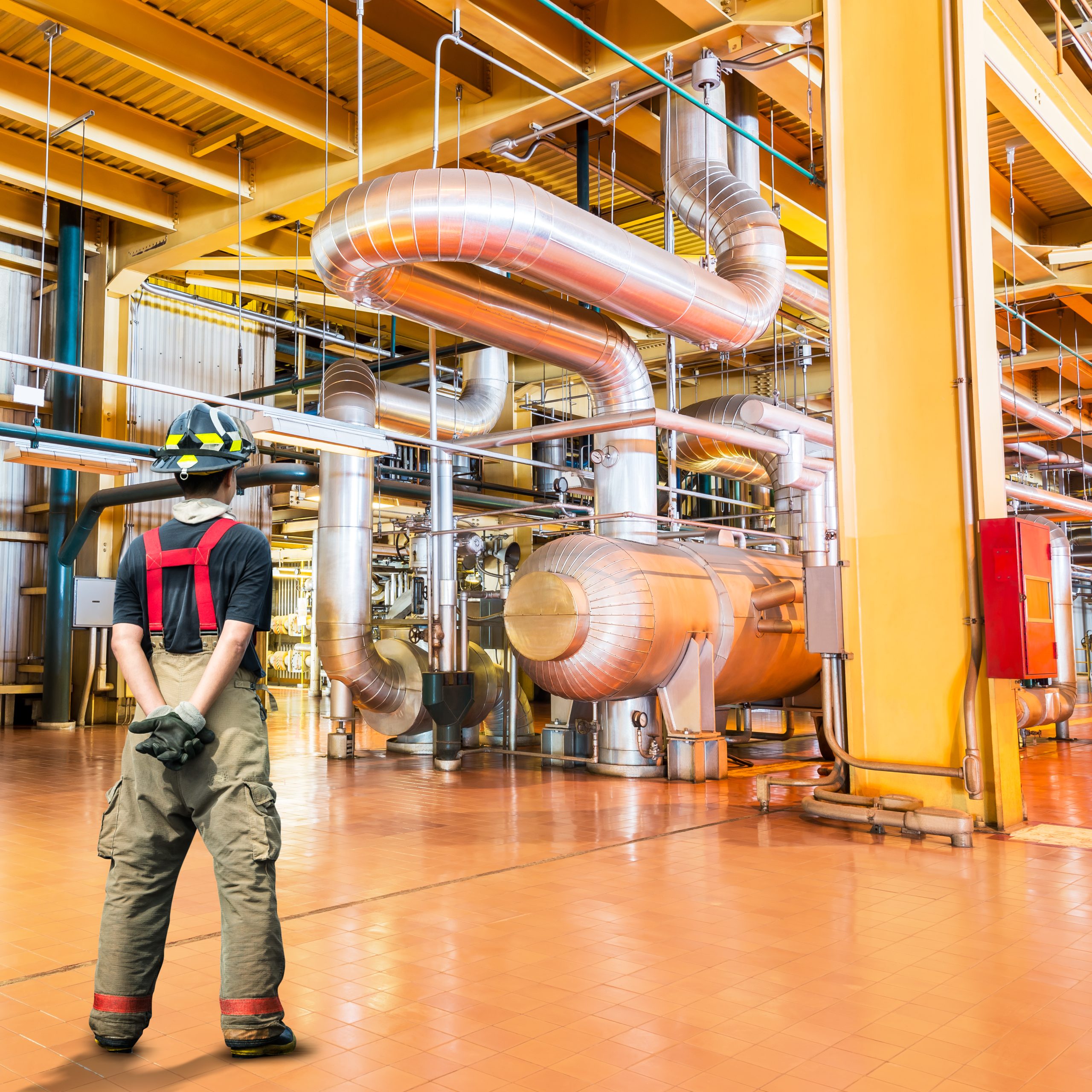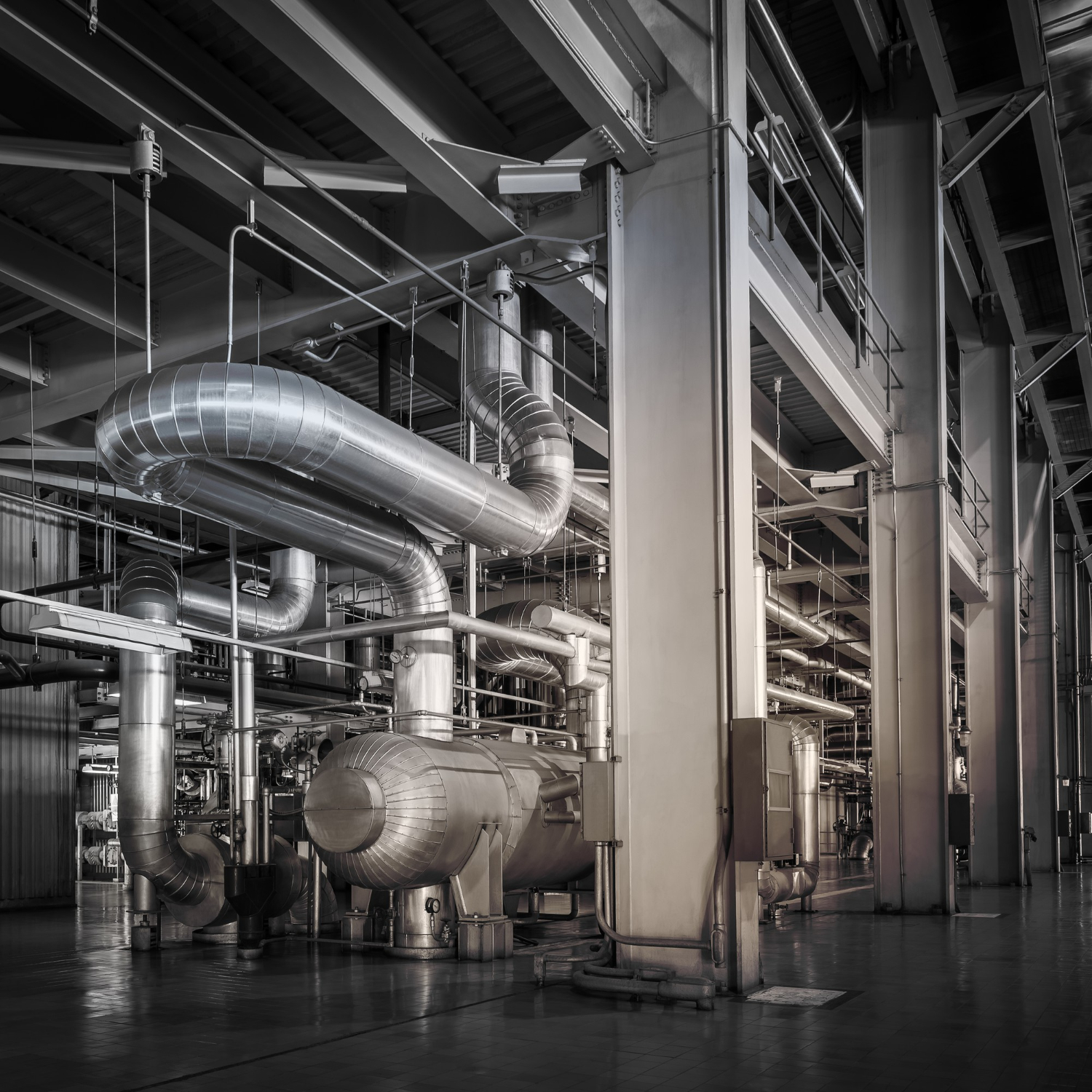HEAT EXCHANGERS
When you choose JMI Mechanical, you’re getting skilled and friendly technicians with a trustworthy brand and reputation. We take pride in our work because we genuinely enjoy what we do, and it reflects in our service!
What is a Heat Exchanger, and How Does it Work?
Heat exchangers are like intermediaries for heat—they help move heat from one place to another without mixing things up. They’re super important in industries where controlling temperature is crucial, like making power or chemicals.
Types of Heat Exchangers
There are different kinds of heat exchangers, each with its special job. Think of plate heat exchangers as compact and efficient, perfect for heating and cooling systems you might find in buildings. Shell and tube heat exchangers are tough and adaptable and are used a lot in industries like oil refining and making medicine. And if you can’t use water for cooling, air-cooled heat exchangers step in to save the day.
How Heat Exchangers Work
So, here’s the basic idea: when two fluids with different temperatures meet in a heat exchanger, heat from the hotter one moves to the cooler one. But here’s the cool part—they don’t mix! It’s like they’re saying hi without getting too close, keeping their temperatures separate.
Heat Exchangers: How They’re Used
Heat exchangers are like multitasking machines used in lots of different places. Imagine them as devices that help move heat around. Here’s how they’re used:
In places like your school or house, there are systems called HVAC, which stands for heating, ventilation, and air conditioning. These systems play a vital role in making sure the temperature indoors is comfortable by shifting warmth from one spot to another. For instance, when it’s chilly outside, the HVAC system works to bring in heat to keep you warm, and when it’s hot outside, it helps to cool down the indoor air. So, basically, it’s like the HVAC system is your indoor temperature guardian, making sure you stay cozy no matter what the weather’s like outside!
In power plants, they’re super important. When steam comes out of turbines, heat exchangers help turn it back into water, so it can be used again to make more steam and generate electricity.
Even in chemical factories, heat exchangers are busy. They help control the temperature when different chemicals are mixed in reactions. That way, everything happens just as it should.
Benefits of Heat Exchangers
Heat exchangers are pretty cool because they’re really good at saving energy. This means they help companies and homes save money on their energy bills. They’re also nice and small, which is great because they can fit into tight spaces. Plus, they help the environment by recycling heat and using less energy overall.
Heat exchangers are like superheroes for saving energy. They’re small but mighty machines that work wonders for businesses and homes alike. One of their best superpowers is their ability to save loads of energy, which means they can cut down on the amount of money they have to spend to keep things running smoothly. They’re like the secret weapon in the battle against high energy bills.
Another awesome thing about heat exchangers is that they’re compact, meaning they don’t take up much space. So, even if you’re working with a small area, you can still squeeze in a heat exchanger to help you out. This makes them perfect for places where space is limited, like in apartment buildings or on industrial sites where every square inch counts.
Challenges and Limitations of Heat Exchangers
Heat exchangers are super useful, but they come with some problems we need to deal with. One big issue is fouling. Imagine gunk building up on the surfaces where heat is supposed to transfer—it’s like having dirt blocking the way, making it harder for the heat exchanger to work well. This can happen over time and mess up how efficiently it operates.
Maintenance and Cleaning
To ensure optimal performance and longevity, heat exchangers require regular maintenance and cleaning. This includes periodic inspection of heat transfer surfaces for fouling and corrosion, as well as the implementation of appropriate cleaning techniques such as chemical cleaning or mechanical brushing.
Future Trends in Heat Exchanger Technology
The field of heat exchanger technology is continually evolving, driven by advancements in materials science and engineering. Emerging technologies such as additive manufacturing and computational fluid dynamics are enabling the development of smarter, more efficient heat exchangers capable of adapting to dynamic operating conditions.
Environmental Impact
In an era of increasing environmental consciousness, heat exchangers play a crucial role in reducing greenhouse gas emissions and promoting sustainable practices. By optimizing energy usage and minimizing waste heat, they contribute to the overall efficiency and eco-friendliness of industrial processes.
Selecting the Right Heat Exchanger
When you’re picking out a heat exchanger, like the ones used in things such as air conditioners or car engines, you need to think about a few important things. First off, you have to consider how the heat exchanger will be used, what kind of stuff it will be dealing with (like liquids or gases), and how much space you have for it. It’s like figuring out which car to buy based on how many people you need to transport and where you’ll be driving.
Engaging in discussions with seasoned engineers and experts well-versed in the intricacies of heat exchangers can greatly enhance your decision-making process. Their knowledge can serve as a compass, navigating you through the complexities and ensuring you select the optimal solution tailored precisely to meet your requirements.
Cost Considerations and Compliance
While the initial investment in heat exchangers may seem substantial, their long-term benefits in terms of energy savings and operational efficiency far outweigh the upfront costs. Additionally, proper maintenance and timely upgrades can further enhance their cost-effectiveness over their lifespan.
Regulatory Compliance
Ensuring heat exchangers meet specific rules and regulations is super important. These rules cover how they’re designed, installed, and used. Making sure they follow these rules is about more than just being safe and reliable. It’s also about avoiding legal trouble and financial problems that can pop up if they don’t meet the standards.

Trust JMI Mechanical
Heat exchangers are really important in factories and other big places where they make stuff. They help move heat around so things stay cool and cool. Basically, they’re like super helpful machines that make sure everything stays just right.
As technology keeps getting better and people care more about not hurting the environment, heat exchangers are going to become even more important in the future.
So, if you ever need someone to fix or take care of your heat exchanger, JMI Mechanical is the place to call. We’ve got your back!
FREE QUOTE
Do you need help with HVAC or Plumbing service or maintenance? Fill out this form to get in touch with JMI Mechanical.
OFFICE LINE
ADDRESS
5610 Dividend Rd. Suite A, Indianapolis, IN 46241
WORKING HOURS
OPEN 24/7/365
OFFICE LINE
ADDRESS
5610 Dividend Rd Suite A, Indianapolis, IN 46241
WORKING HOURS







